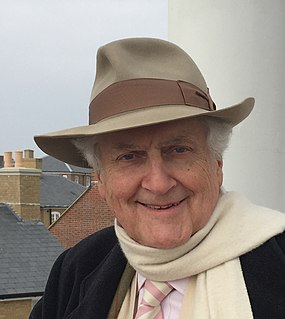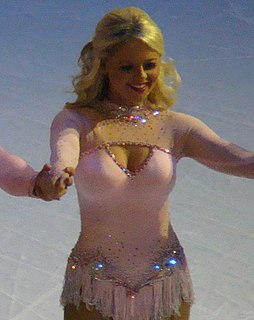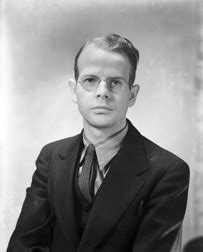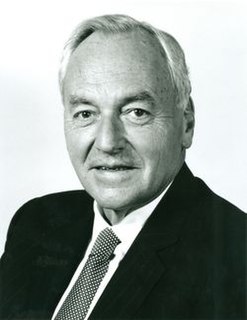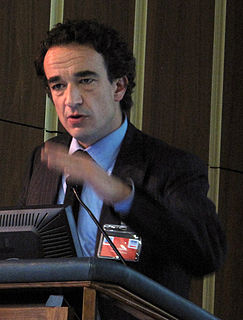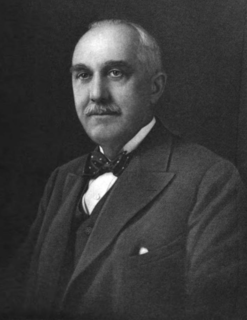A Quote by Christine Jennings
They [Rappites] were moving from Southern Indiana to Pennsylvania, where they had originally settled when they came from Germany. They were looking for someone who wanted to buy a pre-built town, which wouldn't have been appropriate for any kind of normal settlement. That's when Robert Owen [Welsh industrialist and utopian socialist] buys the village and founds New Harmony.
Related Quotes
You need a prince to make a town in an intellectual sense. Developers want to make money. If they cared about architecture, they'd become architects. I've had so many projects that never came off because they had no sponsor, and not because they were utopian. I just want to build a town that's normal.
I'm a small town boy from a place not too different from Farmville. I grew up with a corn field in my backyard. My grandfather had emigrated to this country when he was about my son's age. My mom and dad built everything that matters in a small town in southern Indiana. They built a family and a good name and a business, and they raised a family.
The vision shared by both [French utopian] Charles Fourier and Robert Owen was for an entire town to fit into one structure. Owen's design for what he called a "parallelogram" was essentially to have a whole city in one building, laid out around a huge quadrangle. Fourier's scheme was to build a massive Versailles-like structure that he called a "phalanstery." In both cases they had these architectural dreams that we now recognize as pretty unappealing.
There are four of us, and we were all born in different cities because my dad worked all around the place. We settled in Birmingham, so I spent most of my time growing up there. We were all given very Welsh names - Geraint, Owen, Rhiannon and Gwilym. My mum's called Cainwen, and my dad is somewhat disappointingly called Tom.
There are two instances I studied in which a community moved, amazingly, into an preexisting village built by other, earlier communalists. The Rappites were a German millenarian sect I mostly leave out of the story, even though they are fascinating, because they're focused on salvation and retreating from the world, as opposed to transforming it, like the other groups I write about.
Whether we're talking about the New Deal or the Great Society: they didn't come about because they wanted to buy people off with "hush money." They were the outcomes of struggles. They were the outcomes, in the 1930s, of a viable socialist-communist movement. They were the outcomes of a viable workers' movement. FDR didn't give in because he wanted to shut people up, he gave in because he was under pressure. He had no choice.
I remember one letter from a girl in a midwestern town who read one of my books and thought she had discovered it- that no one had ever read it or knew about it. Then one day in her local library she found cards for one or two of my other books. They were full of names- the books were borrowed all the time. She resented this a bit and then walked around the town looking in everybody's face and wondering if they were the ones who were reading my books. That is someone I write for.
Acceptable rules of conduct were suspended when it came to the spoon shortage. The deficit had gotten so bad that prices were all but unaffordable, and dynastic spoon succession had become a matter of considerable interest. Spoons were even postcode engraved and carried on one's person to eliminate theft, and good table manners, one of the eight pillars upon which the Collective was built, had been relaxed to allow tea to be stirred - shockingly - with the handle of a fork.
The Bolshevik revolution was a counter-revolution. Its first moves were to destroy and eliminate every socialist tendency that had developed in the pre-revolutionary period. Their goal was as they said; it wasn't a big secret. They regarded the Soviet Union as sort a backwater. They were orthodox Marxists, expecting a revolution in Germany. They moved toward what they themselves called "state capitalism," then they moved on to Stalinism. They called it democracy and called it socialism. The one claim was as ludicrous as the other.
I grew up in a town where there were no adults over forty who weren't somebody's parents. It was, unfortunately, the kind of town that's a "great places to raise kids" - that's basically code for "there are no adults here who are not parents." I had a few teachers who were kind of weirdo drama teachers and were hugely influential.
When In The Style came to me asking if I wanted to do a collection, I said very clearly what kind of collection I wanted it to be, and the lovely thing was that they were looking to do the same kind of thing. I stated that I didn't want any retouching, and I want the women modelling the clothes to represent all women.
We had no irony when it came to girls, though. There was just no time to develop it. One moment they weren't there, not in any form that interested us, anyway, and the next you couldn't miss them; they were everywhere, all over the place. One moment you wanted to clonk them on the head for being your sister, or someone else's sister, and the next you wanted to....actually, we didn't know what we wanted next, but it was something. Almost overnight, all these sisters (there was no other kind of girl, not yet)had become interesting, disturbing, even.
I remember my father had a sermon he used to preach when we were in Florida, in which he gave a reference to the Southern Cross-about the stars, the colors, in the Southern Cross, which thrilled me very much. I must have been around 5 years old. ... Now, it turns out that the Southern Cross itself does have one red star, together with three blue ones.
Originally, I didn't play any New Order when I deejayed. I suppose it comes from being a little embarrassed or humble or whatever. But people were coming to see me because of New Order, so in the end, I had to realize that if they were using my name on the poster, then maybe I should play some of the music.


